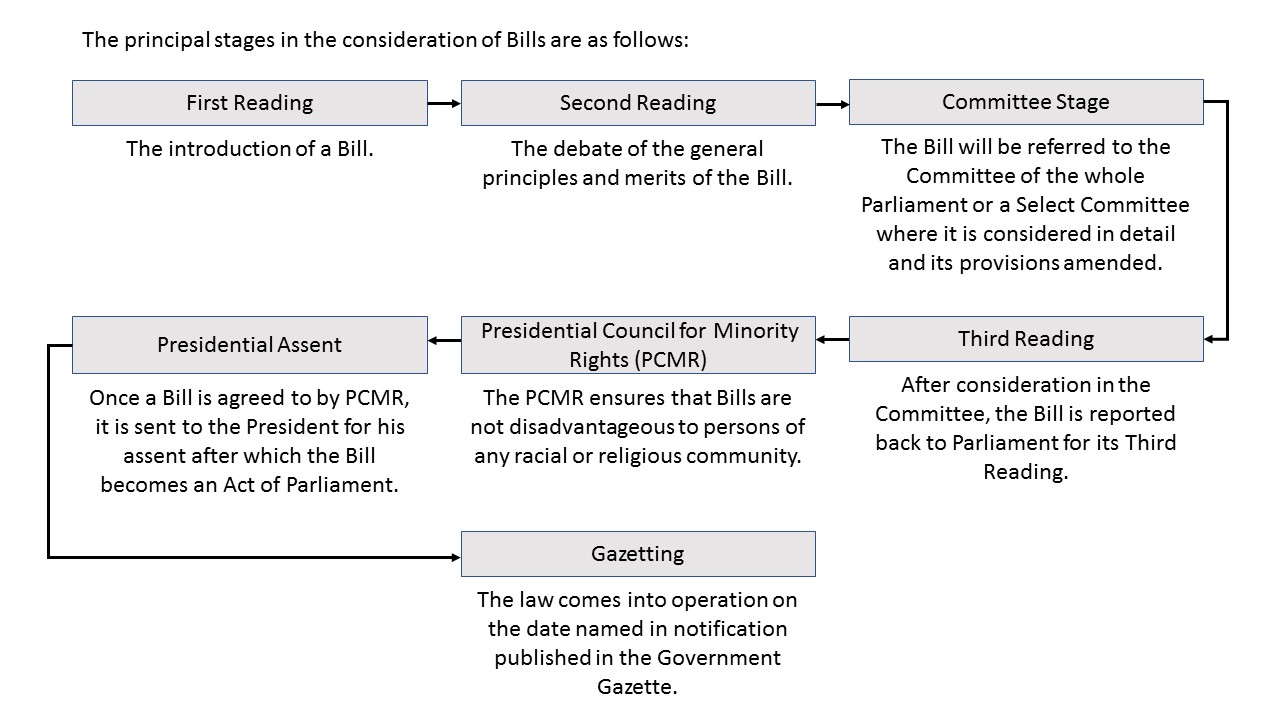Functions
The functions of Parliament include making laws, taking up a critical/inquisitorial role to check on the actions and policies of the Government and scrutinising the State's finances.
Making Laws
One of Parliament's main functions is to make laws for the country. Before a law is passed, it is first introduced in Parliament as a draft called a "Bill". Bills are usually introduced by a Minister on behalf of the Government. However, any Member of the House can introduce a Bill known as a Private Member's Bill. All Bills must go through 3 readings in Parliament and receive the President's assent to become an Act of Parliament or a law.
Critical/Inquisitorial
At the start of each Parliament sitting, one and a half hours are reserved for Question Time. This is a chance for MPs to raise questions with the Ministers on their respective Ministries' responsibilities.
Through questioning the Ministers, MPs make the Government accountable for its actions and allows the public to listen to a spectrum of views and opinions to find out how decisions affecting them are made. This forms an integral part of Parliament's role. Questions may be filed by any MP who can seek either oral or written replies from Ministers.
Financial Scrutiny
Parliament exercises financial scrutiny by requiring the Government to seek the approval of the House for its annual Budget. The annual Budget Statement is usually delivered in Parliament in late February or early March before the start of a new financial year on 1 April. The Budget Statement and the individual Budgets for each Ministry are debated rigorously in the Chamber before MPs give their approval.
The Minister for Finance presents the annual Budget Statement in Parliament. He will review the country's economic performance in the previous year and announce economic proposals including any taxes or incentives to be introduced for the coming year. Time is allotted for MPs to make speeches to question the annual Budget Statement.
Accompanying the annual Budget Statement is the Budget Book which sets out in detail the Estimates of Expenditure showing how each Government Ministry proposes to use the public monies allocated to it in the new financial year. Time is set aside for MPs and Ministers to debate the Estimates of Expenditure, and the policies and programmes of each Ministry. These debate sessions stretch over 7 to 10 days following which the Supply Bill will be passed. The Supply Bill authorises the Government to withdraw the necessary monies from the Consolidated and Development Funds to finance public services as allocated in the Estimates of Expenditure.
